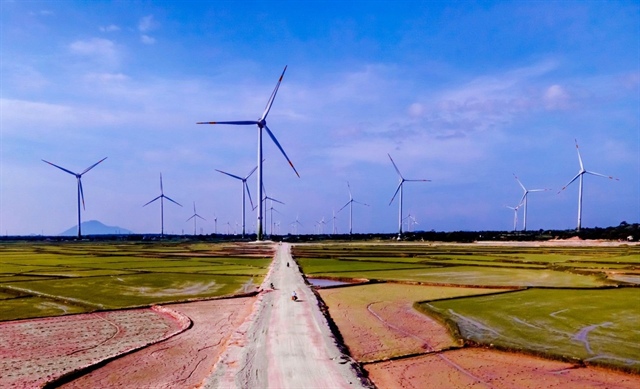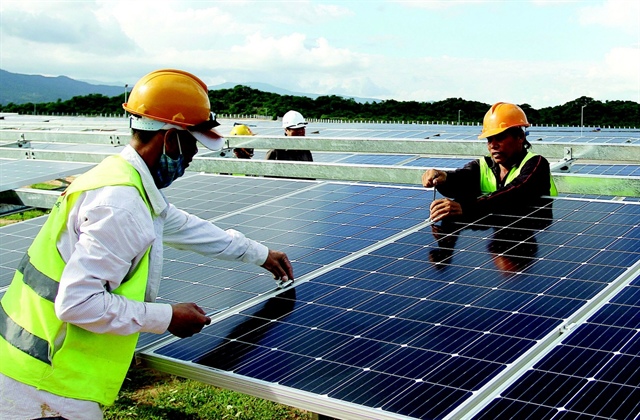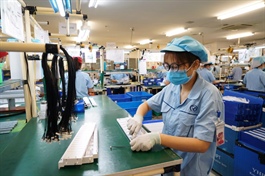Green finance puts down roots in Vietnam
Green finance puts down roots in Vietnam
The development of green finance is an important foundation for sustainable business growth.
Significant progress
The National Progress Report by the Sustainable Banking and Finance Network (SBFN) has ranked Vietnam among a group of advancing countries in terms of implementing sustainable banking and financing practices. According to Deputy Director of the Department of Credit for Economic Sectors under the State Bank of Vietnam (SBV) Pham Thi Thanh Tung, as of October 31, 2022, outstanding loans for green projects reached more than VND477.5 trillion (accounting for 4.4 percent of total outstanding loans), up 7.78 percent compared to 2021. These loans are focused mainly in the renewable and clean energy sector (47 percent), and green agriculture (32 percent).

Vietnam prioritizes green credit financing for renewable energy projects |
In addition to capital from banks, the green financial market is reflected by the issuance of green bonds. The total value of Vietnam’s green bonds reached US$1.5 billion in 2021, making Vietnam the second largest source of green debt issuance in ASEAN (the Association of Southeast Asian Nations), after Singapore. The most recent notable green bond deal was the July 2022 issuance of VND1.725 trillion in 10-year green bonds by EVNFinance at an annual interest rate of 6.7 percent.
The increasing source of green credit has contributed to a number of recent programs. These include low carbon transformation in energy efficiency, a project implemented by BIDV and ANZ with funding from the Danish government; loans for renewable energy development projects at Vietcombank, BIDV, VietinBank, SHB, HDBank from the World Bank’s capital, and more.
|
Environmental loan risk management
Ketut Kusut, a senior World Bank finance expert said the additional investment in climate change adaptation and mitigation solutions until 2040 is estimated at about 6.8 percent of annual gross domestic product (GDP), or about US$368 billion, which cannot not be met by the domestic capital market alone. Therefore, Vietnam will need a synchronous combination of public and private resources and preferential capital to facilitate the new development roadmap. Vietnam has not yet enacted general regulations to promote green financial activities, which is also a significant barrier, he said.
The SBV has set a 2025 goal for all banks to develop a set of rules and evaluate environmental and social risk management in credit granting activities, and apply environmental standards to projects they fund. In addition, at least 10 to 12 banks will be required to have specialized departments in charge of environmental risk management and 60 percent of banks will have access to green capital and provide loans for green credit projects.
According to Pham Xuan Hoe, former deputy director of the SBV’s Banking Strategy Institute, in order to facilitate business access to green finance, the government, the SBV and the Ministry of Finance are expected to urge banks to develop green credit and green bond programs for renewable energy; guide the private sector on approaching, mobilizing and using international green finance; issue consistent and stable policies to support green, clean and sustainable energy development. Procurement activities for green public spending need to be integrated into policies and implemented in ministries, sectors and localities, Hoe said.























